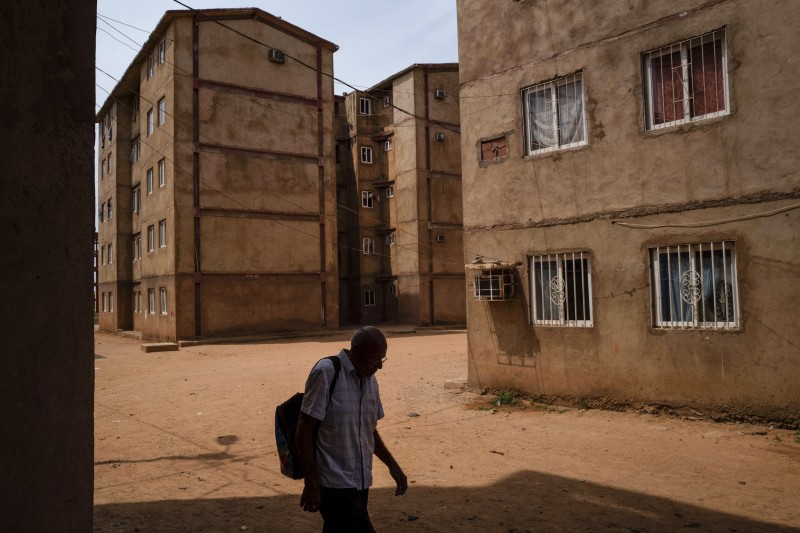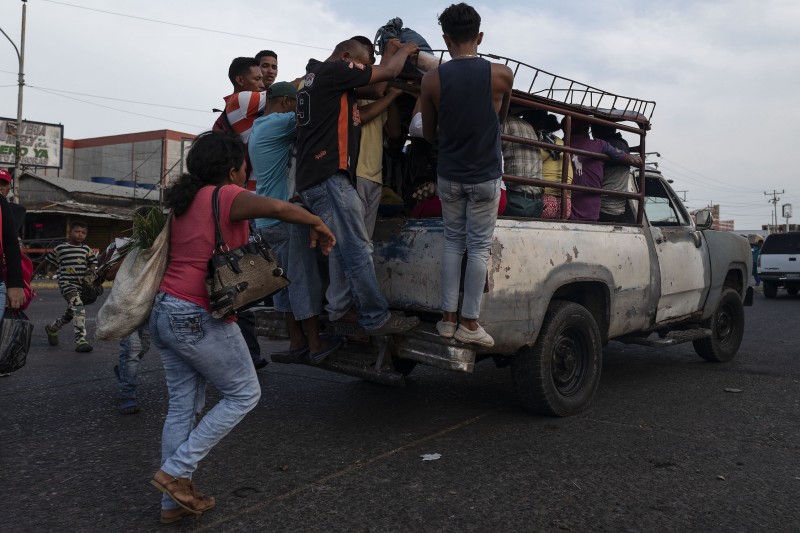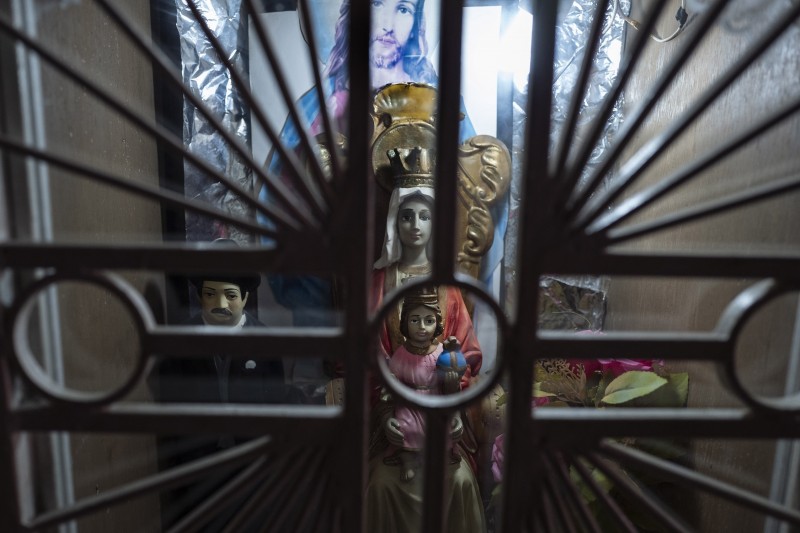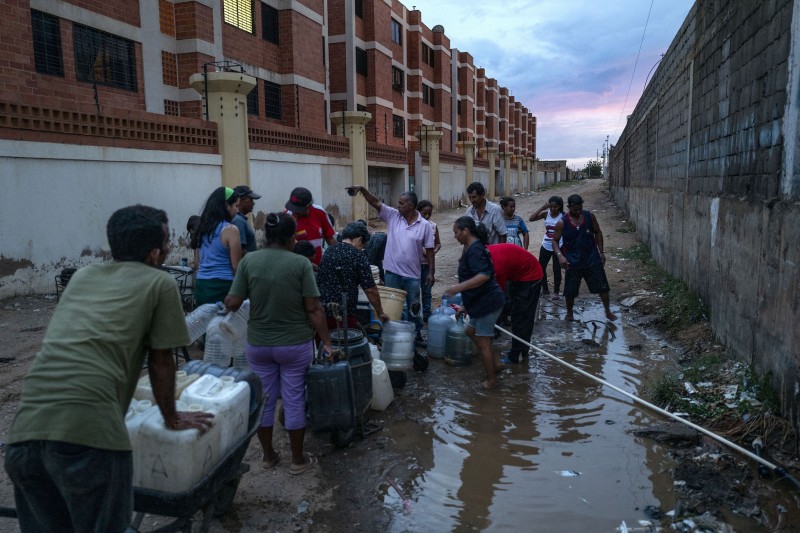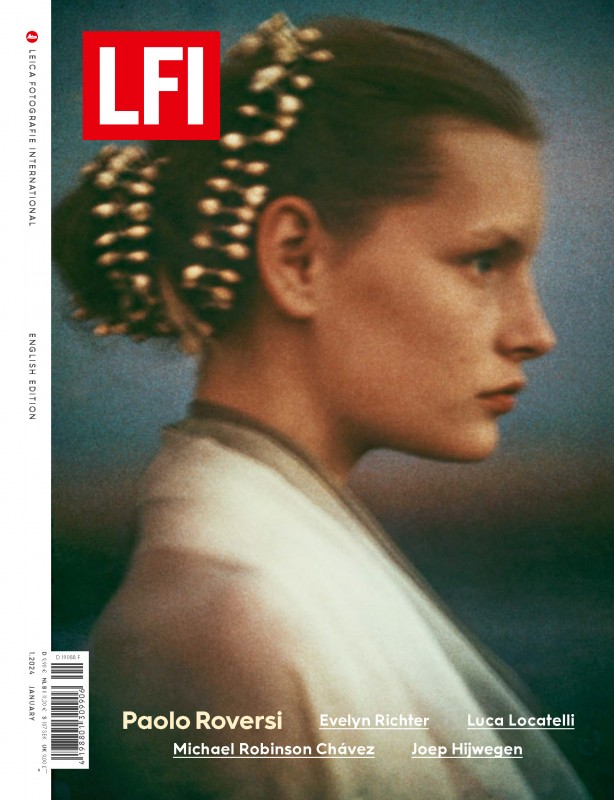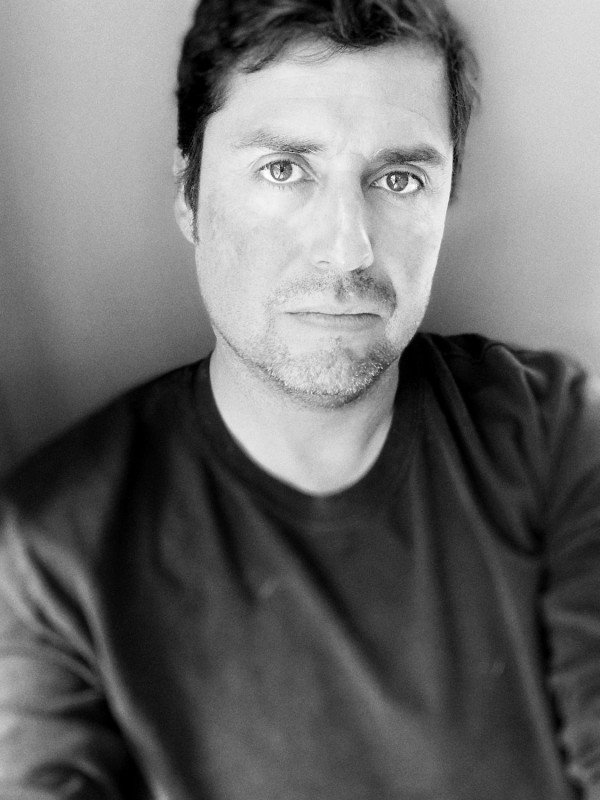Venezuela – in a collapsing state
Venezuela – in a collapsing state
Michael Robinson Chávez
January 5, 2024
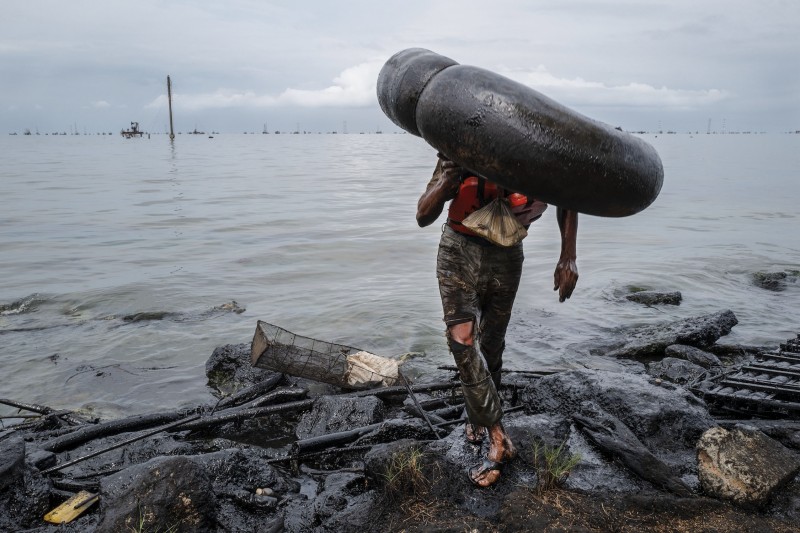
Maracaibo was once a symbol of oil wealth affluence with non-stop flights to Europe. The infrastructure that delivered wealth into the city now brings misery in the form of a constant crude oil spill, that has befouled Lake Maracaibo, South America’s largest lake. Fishermen continue to try and make a living in the sludge. Their clothes, homes and food are covered in oil. The complete collapse of the country’s oil infrastructure is emblematic of Venezuela’s current status
Michael Robinson Chávez: I really didn’t have a personal connection to Venezuela when I went for my first visit in 2019. But the country always fascinated me. Getting a journalism visa for Venezuela was never easy, until it suddenly was. In 2019 they opened up to us at The Washington Post, and we were able to secure visas for multiple trips. Latin America at the time was amid a growing ideological split. Venezuela was leading the vanguard of the “new” left. And for Venezuela at least, it was all collapsing. I really wanted to see how a country went from being the economic envy of Latin America to a collapsing state full of tension.
Did you have a plan in advance of what you wanted to cover?
While in Venezuela, I worked with the outstanding Washington Post Latin America correspondent Tony Faiola. On the first trip we mainly covered the news that was unfolding. News events dictated our coverage. Tony had assembled a phenomenal local team on the ground including Mariana Zuñiga, Andreina Aponte and Rachelle Krygier. It is essential to have professional local talent and knowledge to help you unlock the stories.
I returned in May and September, and worked extensively with Mariana on stories that I had researched and pitched to the Post’s editors, including Chloe Coleman on the International Desk, who helped guide the resulting project. We were covering the decay of the oil and tourism industries, so we were drawn to those regions. What we found was horrifying; just a complete collapse of the infrastructure. It was an ecological and economic catastrophe. I have traveled throughout Latin America and have never seen a place unravel to that extent. Leaky oil pipelines were allowing crude oil to gush into Lake Maracaibo, and gold miners were ravaging the rain forests surrounding Angel Falls.
Why did you use the Leica Q for this project?
This was the first international story where I used the Leica Q extensively. And it was such a joy to work with. Its unobtrusive nature was so crucial in many sensitive situations I found myself in: funerals and people’s homes, for example. The Q has a reputation for being a great travel camera, for good reason. But I find it so wonderful for documentary and journalistic work as well. It is certainly my workhorse when I'm in the field.
To what extent do you think photography can help to draw international attention to the crisis in Venezuela?
The most I can hope for is that my photographs will reach an audience to help educate them about what is going on in Venezuela. If somehow the images elicit some change, well, that is a huge and rare victory. I want the photographs to ask as many questions as they may answer. To feed curiosity and raise awareness. While I spent many months in Venezuela in 2019, there are talented local photographers who have been illuminating what is happening there for years. Andrea Hernandez and Adriana Loureiro Fernandez are two that come to mind immediately. I was fortunate to be there for The Washington Post, which is seen by many influential people. You can only hope that you are capturing the moments that can really drive them to action.
Did you experience any moments during your travels in Venezuela that changed your view of the country?
Oh yes, so many. And places. The stunning beauty of the country really made an impression. The resilience of the people, the hardships they are going through; and the fact that they still welcomed me with smiles, stories and an open home are impressions that have never left me. Going for the first time, I really didn’t know what to expect. I had done plenty of research, but nothing replaces being there and talking with people.
LFI 1.2024+-
An impressive visual diary from Peru by Michael Robinson Chávez can be found in LFI Magazine 1.2024. More
Michael Robinson Chávez+-
The two-time Pulitzer Prize-winning photographer for The Washington Post became seduced by photography after borrowing a camera for a trip to Peru. A native Californian and half Peruvian, he previously worked with the Associated Press, The Boston Globe and The Los Angeles Times, amongst others. He has covered assignments in over 75 countries, including the Russian invasion of Ukraine, the collapse of Venezuela, the Egyptian revolution, gold mining in Peru and the 2006 Hezbollah/Israeli war. He is also a three-time winner of the Robert F. Kennedy Award for Photojournalism, and was named Photographer of the Year by PX3 Photographie Paris in 2023 and Pictures of the Year International in 2020. Robinson Chávez is an iWitness Fellow, teaches with Leica Akademie and Foundry Photojournalism Workshops, and his work has been exhibited worldwide. More

Maracaibo was once a symbol of oil wealth affluence with non-stop flights to Europe. The infrastructure that delivered wealth into the city now brings misery in the form of a constant crude oil spill, that has befouled Lake Maracaibo, South America’s largest lake. Fishermen continue to try and make a living in the sludge. Their clothes, homes and food are covered in oil. The complete collapse of the country’s oil infrastructure is emblematic of Venezuela’s current status
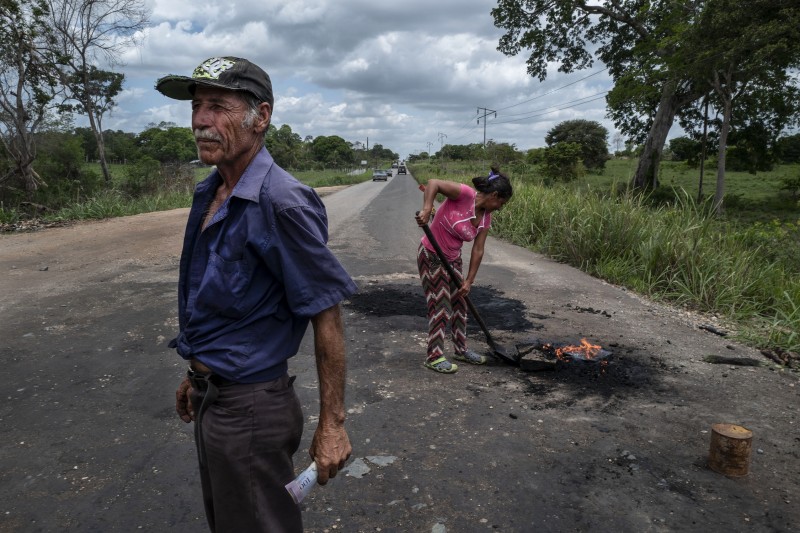
Elderly locals repair potholes on the main road and hope that passers-by will give them a handful of the worthless local currency
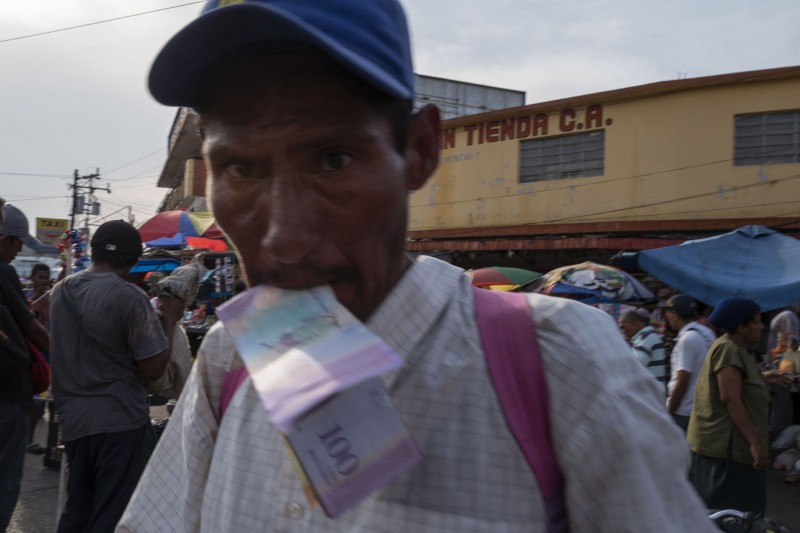
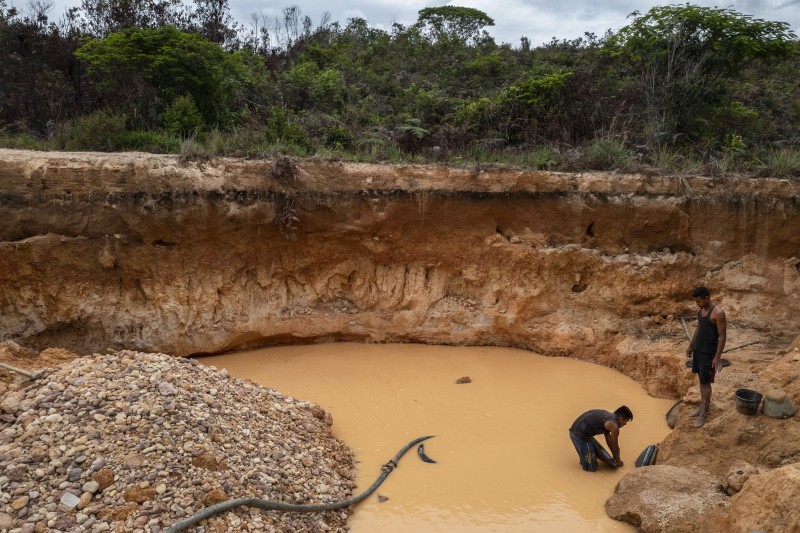
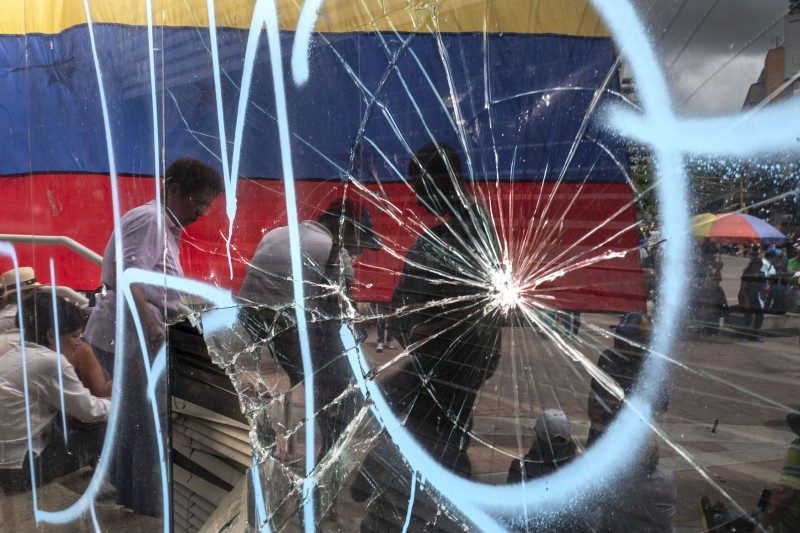
The streets of the country’s capital city, Caracas, were full of rage and despair. Riots were followed by funerals, as a dedicated opposition demonstrated against the totalitarian regime of Nicolas Maduro – often with fatal consequences
